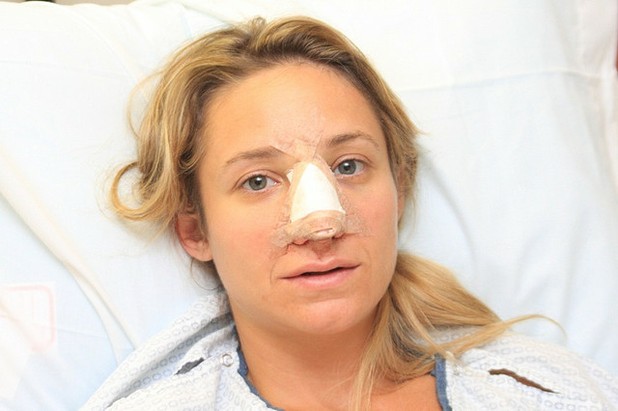- Story Highlights
-
- Body Dysmorphic Disorder: 33% of those seeking a nose job suffer from BDD
- Multiple Surgeries: People with BDD were very likely to have had multiple bouts of cosmetic surgery.
Want a Nose Job? You May Have a Mental Illness – Study Says 1 in 3 Who Seek Rhinoplasty Suffer from Body Dysmorphic Disorder
Comments (1)A third of people asking for a nose job have a mental illness called body dysmorphic disorder (BDD).
Belgian researchers at the University Hospitals Leuven say that 1 in 3 people seeking a nose job suffer from a mental illness called BDD.
BDD sufferers obsess about any real or imagined faults in their physical appearance to the point that their obsession interferes with an ability to live a normal life, or in some cases – to even leave the home.
To determine the prevalence of BDD in those seeking rhinoplasty, the Belgian researchers surveyed 266 patients at the hospital who were seeking a nose job over a 16 month period. They found that:
- 33% of those seeking a nose job had symptoms of BDD
- When a person sought a nose job for a genuine medical reason, the prevalence rate of BDD was only 2%
- Of those seeking a nose job for purely cosmetic reasons, the prevalence rate of BDD rose to 43%
- People seeking rhinoplasty who had had previous cosmetic surgery were significantly more likely to display symptoms of BDD as were those seeking a nose job who suffered from other types of mental illness.
- BDD severity is not related to actual physical attractiveness. Based on an objective evaluation of the noses of those seeking cosmetic surgery. People with BDD who were the most upset and obsessed about a physical defect that needed correcting did not necessarily have more need for surgery than those with only minor symptoms of BDD
BDD is estimated to affect between 1% and 2% of the general population and as many as three quarters of those who suffer from BDD have co-occurring depression.
Problematically however, since BDD is mostly in the mind and not based on physical reality, people with the disorder who get plastic surgery are rarely happy with the results and often request more cosmetic surgery to correct ongoing dissatisfaction.
Dr. Phillip Haeck, a plastic surgeon in Seattle weighed in on the need to screen people for BDD before surgery, saying, The biggest mistake is to offer to operate on them, because the chances that they will be satisfied afterward, no matter how good the shape of the nose may be, are very low,"


